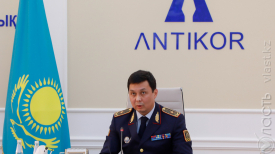Just in the past decade, Kazakhstan’s lawmakers have passed several legislative hurdles and control mechanisms against civil society, especially targeting those organizations that receive foreign funding, informally called “foreign agents”. A recent much-criticized decision by Kazakhstan’s Ministry of Finance to publish a (partial) list of foreign-funded entities in Kazakhstan has reignited the stigma surrounding such civil society groups. Legislation of this kind hinders, threatens, and punishes civil society. That foreign agent-style laws have been proposed and passed in several of Kazakhstan’s neighboring countries, including Russia, Kyrgyzstan and Uzbekistan, shows that this is a concerning and ongoing regional trend.
After the list was published in September, at least one NGO was singled out for extra financial scrutiny. The election monitoring NGO “Echo” was targeted when Nurbank, its lender, applied financial checks against extremism and terrorism, specifically referring to Echo being on the list. Previously, information about foreign-funded organizations and individuals had only been recorded by the authorities, not made public. Together with our partners, we called on the Kazakhstani authorities to remove the public registry, because it serves no other purpose except to stigmatize, discredit, and discriminate against civil society.
Russia: The First Mover
For more than a decade, Russia has been using the “foreign agent” label to target civil society, media and dissidents, constituting nothing short of a worst case scenario of foreign agent legislation. Since its passing in 2012, the law has evolved into a tool that can be applied to anyone considered to have a “foreign influence”, in its most arbitrary definition. While the initial Russian legislation only applied to NGOs, it was later expanded to also cover media organizations and individuals. Even a company providing a Virtual Private Network (VPN) was labeled a “foreign agent” a few weeks ago.
Kyrgyzstan: The Copycat
In Kyrgyzstan, recent developments paint a disturbing picture of the situation for civil society in the country, particularly for foreign funded NGOs. A draft law currently under consideration draws heavily on the original Russian bill. The wording of the law is vague and ambiguous, and as we at IPHR and seven other international NGOs stressed in a joint statement, the law can be applied to almost any work carried out by NGOs and human rights advocates. We therefore warned that the adoption of the law could result in hundreds of groups being forced to close down. Unfortunately, the draft law has progressed in parliament and was passed on first reading in October 2023.
Uzbekistan: Forcing State Cadres into NGOs
Uzbekistan established mechanisms for control of foreign-funded civil society groups. Last year’s legislation introduced a new mechanism for the state to approve foreign grants received by NGOs, and a compulsory partnership with state agencies in the implementation of their projects. Among other things, appointed state employees are responsible for signing memorandums of cooperation with the state, as well as controlling and monitoring project progress and results. This means that the state effectively controls and exercises surveillance over NGOs that receive foreign funding. Despite revisions in October 2023, major concerns about this legislation remain.
Kazakhstan: Arbitrary Tax Scrutiny
Kazakhstan’s first “foreign agent”-style law was adopted in 2016, with the aim to require all organizations and individuals to report foreign funding for certain activities. As Yevgeniy Zhovtis, the director of Kazakhstan International Bureau for Human Rights (KIBHR) said in an interview in August, the law is absurd because organizations have to report every single penny they receive.
The law places an unnecessary reporting burden on foreign-funded groups in Kazakhstan and can be used arbitrarily. The adoption of this legislation was criticized at the time, with civil society expressing fears that it could be misused - and practice has shown that those fears were well-founded. During the run-up to the 2021 parliamentary elections, the law was used to target a number of prominent NGOs, including KIBHR, which faced heavy fines and the threat of suspension for alleged minor technical mistakes in their reporting of foreign grants. The fines were later retracted, following a national and international outcry, but having the same law still in place, civil society cannot feel safe from similar repression in the future.
While the publication of a list of foreign-funded entities in Kazakhstan might seem like a more innocuous move than Russia’s draconian “foreign agent” law or its copy-pasted version of it in Kyrgyzstan, all these measures reflect the same kind of misguided perceptions regarding the role of foreign-funded groups and serve the same purpose of undermining public trust for civil society. If Kazakhstan’s government is sincere about its commitment to democratic reforms, it should put an end to the stigmatization and excessive scrutiny of foreign-funded groups.
And, scrapping the list would be a great start.
Alva Omarova is a researcher for International Partnership for Human Rights. IPHR is an independent, non-governmental organization founded in 2008. Based in Brussels, IPHR works closely together with civil society groups from different countries to raise human rights concerns at the international level and promote respect for the rights of vulnerable communities. See more at: https://www.iphronline.org/en/
Поддержите журналистику, которой доверяют.








